VW plans to make Jetta its own brand in China
A few weeks ago, Group CEO Herbert Diess had already announced that Volkswagen intends to focus even more strongly on the Chinese market in future. Critics fear that the already enormous dependence of the Wolfsburg-based company on China as its largest sales market will continue to grow. Nevertheless, Diess made the future development clear and defended his strategy: “Volkswagen’s future will be decided on the Chinese market”. This became concrete last week when the Volkswagen Group announced its intention to appear in China with the new sub-brand “Jetta”. It starts with three models for market launch, which are intended primarily for the younger population and a steadily rising middle class in cities outside the metropolitan regions. Outside the megacities such as Beijing or Shanghai, the number of vehicles with around 100 cars per 1,000 people is still relatively low, and the new Jetta brand has great potential here.
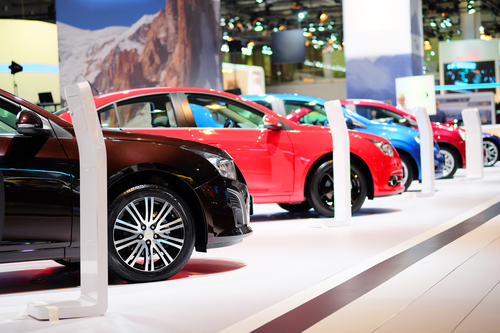
Three new models will be launched at the start of sales in the third quarter of 2019: a sedan and two SUVs. The vehicles will be produced by the existing joint venture FAW-Volkswagen in Chengdu. Sales prices, further details and a first look at the models will be presented at the Shanghai Motor Show in April 2019. VW Board Member for Sales Jürgen Stackmann justified the decision to use the name “Jetta” as a brand with the fact that the VW Jetta had played an outstanding role as a single model in the manufacturer’s history in China and that it would now like to pay tribute to this with an entire model family. Furthermore, due to the long market presence and popularity of the VW Jetta, the name is already known to a broad mass of the population.
Eventually, the Volkswagen Group is worried about a general cooling of the Chinese car market. A decline in production and sales figures had to be announced in the second half of 2018. Volkswagen’s joint ventures in China generated an attributable profit of €4.6 billion compared with €4.7 billion in the previous year. German automakers in China also process components from abroad. Are you active in the automotive sector and would like to export your products to China? We will be happy to advise you on the China Compulsory Certification (CCC), which is a mandatory requirement.
For more information on how CCC certification may affect your company, or for more information about CCC certification in general, the process, and the associated costs, please visit our website and our News Section where you will find current updates twice a week.
Please do not hesitate to contact us for further details and consultation. You can contact us via e-mail, or call us (UK: +44 2071931135, Rest of Europe: +49 69 2713769150, US: +1 773 654-2673).
You can also check out our free CCC-Brochure, which can be downloaded right here as a PDF file or you consult our book (in English) “A Brief Guide to CCC: China Compulsory Certification”, which can be found directly here on Amazon.
Chinese startup Grove enters the fuel cell car business
The start-up company Grove is another Chinese carmaker that focuses on alternative drive systems, but unlike most of its domestic competitors, Grove plans to drive its vehicles with fuel cells. A development partnership has already been established with the renowned Pininfarina design studio and two concept studies will be presented at the current Auto Shanghai trade fair. Although there are no further technical details about the two vehicles – the Granite sedan and the SUV Obsidian – Grove plans to start series production as early as 2020.
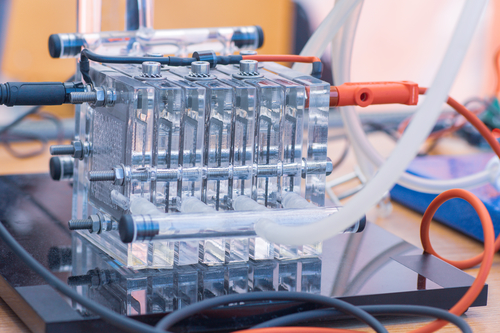
For the introduction and testing of the new models, Grove has agreed to cooperate with a district of the Chinese city of Chongqing and the car rental company Chongqing Panda. The project involves the use of 200 fuel cell cars from Grove. In the following years, an expansion into 20 further Chinese cities with a fleet of 10,000 vehicles is planned. In addition to the Chinese market, Grove plans to sell its cars abroad, including Australia and New Zealand.
Grove Hydrogen is a subsidiary of the Chinese Institute of Geosciences and Environment (IGE), which produces and sells hydrogen from industrial waste. In the coming years, the institute plans to set up the appropriate infrastructure to refuel the hydrogen in large Chinese cities. The car manufacturer Grove has its headquarters in Wuhan and a development and design centre in Barcelona. Further production sites, presumably in China, are to be announced in the course of the year. In addition to Pininfarina’s support in design, Grove has also obtained help from Germany, and there are development partnerships with Hofer Powertrain and the FEV Group. Follow the example of these two companies and take the opportunity to export your products to China. We will be happy to advise you on the China Compulsory Certification (CCC) which is obligatory.
For more information on how CCC certification may affect your company, or for more information about CCC certification in general, the process, and the associated costs, please visit our website and our News Section where you will find current updates twice a week.
Please do not hesitate to contact us for further details and consultation. You can contact us via e-mail, or call us (UK: +44 2071931135, Rest of Europe: +49 69 2713769150, US: +1 773 654-2673).
You can also check out our free CCC-Brochure, which can be downloaded right here as a PDF file or you consult our book (in English) “A Brief Guide to CCC: China Compulsory Certification”, which can be found directly here on Amazon.
Volkswagen expands its automotive cloud to China and the USA
At a conference at the VW Digital Labs in Berlin, the CEOs of Volkswagen and Microsoft, Herbert Diess and Satya Nadella, announced the expansion of their automotive cloud to China and the USA. Nadella has already announced a cooperation with Daimler at the Mobile World Congress in Barcelona. The Stuttgart-based company and Microsoft will use the “eXtollo” platform to manage the carmaker’s Big Data applications.

Volkswagen’s Automotive Cloud combines the areas of Cloud Storage and Computing, Internet of Things and artificial intelligence. VW CEO Herbert Diess underlined Microsoft’s competence in the digitization of automobiles and the associated hardware. Without exception, all carmakers are on the lookout for innovations to offer new, digital services and to connect their vehicles or enable autonomous driving. It is precisely these services that VW intends to further develop on the basis of the Microsoft cloud computing platform and transform the Group from a pure car manufacturer into a mobility provider.
So far, the automotive cloud has mainly been developed for the European market and is now to be continuously extended to China and the USA. The system is based on Microsoft Azure, a cloud computing service on which individual applications such as data storage, calculations, AI and IoT are operated. The Automotive Cloud is to be given its first practical application at the electric Volkswagen I.D., which is to be launched on the European market in 2020. At the same time, production will start in China and a vehicle of the new I.D. model family, presumably an SUV, will be produced in the USA from 2022. China is currently the fastest growing market for electric vehicles. Profit from this growth and export your components and electronic parts to China. Your products must first undergo China Compulsory Certification (CCC). We advise you for the application and during the approval process.
For more information on how CCC certification may affect your company, or for more information about CCC certification in general, the process, and the associated costs, please visit our website and our News Section where you will find current updates twice a week.
Please do not hesitate to contact us for further details and consultation. You can contact us via e-mail, or call us (UK: +44 2071931135, Rest of Europe: +49 69 2713769150, US: +1 773 654-2673).
You can also check out our free CCC-Brochure, which can be downloaded right here as a PDF file or you consult our book (in English) “A Brief Guide to CCC: China Compulsory Certification”, which can be found directly here on Amazon.
Updates to two automotive lighting GB standards
Recently, two GB standards regarding automotive lighting systems have been updated. The old standard GB 5920-2008 will be replaced by GB 5920-2019 (“Photometric characteristics of front and rear position lamps, end-outline marker lamps and stop lamps for motor vehicles and their trailers”) and GB 23255-2009 will be superseded by GB 23255-2019 (“Photometric characteristics of daytime running lamps for power driven vehicles”).
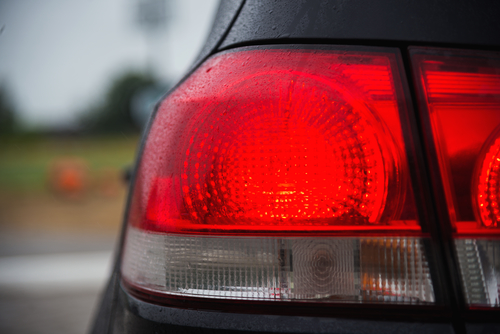
Significant changes in GB 5920-2019 to the previous standard include a modified definition for “single lamp”, the introduction of the concept of “interdependent lamp” and LED as a light source. Additionally, the testing requirements for the emitted color of the light have been modified, as well as the technical requirements for the variable intensity control of the rear position lamps, the end-outline marker lamps and the stop lamps. Generally, this standard has been modified in relation to ECE R7 Rev. 6.
Additions to GB 23255-2019 include new requirements for interdependent lamps and the light distribution angle range. Modifications have been made to the requirements for maximum luminous intensity and the area of the apparent surface. Furthermore, the photometric requirements below the H-H-line have been changed. Revisions to this standard have been made with reference to ECE R87 Rev 3.
Both standards will be implemented by January 1st, 2020, by which date the relevant certification bodies and test laboratories will be in compliance and will have implemented them accordingly.
Products that were certified according to the old versions need to be updated. This can be done by submitting a change application. If the product, in the meantime, has to undergo tests it will be updated automatically. If you are unsure, please contact us.
We are happy to advise you on the new regulations in detail and individually for your needs. We also offer original versions of the Chinese regulations as well as translations.
For more information on how CCC certification may affect your company, or for more information about CCC certification in general, the process, and the associated costs, please visit our website and our News Section where you will find current updates twice a week.
Please do not hesitate to contact us for further details and consultation. You can contact us via e-mail, or call us (UK: +44 2071931135, Rest of Europe: +49 69 2713769150, US: +1 773 654-2673).
You can also check out our free CCC-Brochure, which can be downloaded right here as a PDF file or you consult our book (in English) “A Brief Guide to CCC: China Compulsory Certification”, which can be found directly here on Amazon.
Mazda takes over Ford’s shares of engine plant in China
Mazda acquired 25 percent of Ford’s Nanjing-based engine plant, formerly known as Changan Ford Mazda Engine, and is now the sole foreign partner. The joint venture now belongs equally to Mazda and the Chinese Chongquing Changan. With the acquisition and change of the ownership structure, the company was renamed Changan Mazda Engine. The Japanese automaker hopes that the increased commitment leads to better cooperation with Changan and a higher presence in the Chinese market.

Changan Mazda Engine was founded in September 2005, and Mazda engine production began in April 2007. The plant produces 1.5 to 2.5 liter gasoline engines for the CX-8, CX-5 and Mazda 3 models. Last year, Mazda was able to sell around 320,000 vehicles in China, but by the end of the year, due to weak consumer demand sales have been reduced. To counteract this, it was announced after the acquisition talks that Mazda is working with Changan on the development of an electric car. They hope to regain lost ground with the new electrical car development and a future increase of sales figures.
This news was previously published by Mazda in the US, where they plan to launch an electrically powered vehicle in 2019. According to experts, the focus of sales will be in the state of California, which is known for its forward-looking approach to green automobiles. But even in China so-called New Energy Vehicles (short NEVs), which are vehicles with alternative drives, become more and more important and have been promoted by the government. Therefore, Mazda has now decided to step up with Changan to develop an electric car for the Chinese market by 2020. Unlike the US project, which is likely to be an existing Mazda model with electric drive, a small SUV is being considered for China. According to information, Changan will supply the electronic components while Mazda designs and produces the bodywork and interior. Like Mazda, many car manufacturers in China process components from abroad. Are you in the automotive industry and you want to export your products to China? We are happy to advise you in the context of the China Compulsory Certification (CCC).
For more information on how CCC certification may affect your company, or for more information about CCC certification in general, the process, and the associated costs, please visit our website and our News Section where you will find current updates twice a week.
Please do not hesitate to contact us for further details and consultation. You can contact us via e-mail, or call us (UK: +44 2071931135, Rest of Europe: +49 69 2713769150, US: +1 773 654-2673).
You can also check out our free CCC-Brochure, which can be downloaded right here as a PDF file or you consult our book (in English) “A Brief Guide to CCC: China Compulsory Certification”, which can be found directly here on Amazon.
New presentation of electric cars for China
The Chinese government is firmly committed to electromobility and promotes new technologies, environmentally friendly drives and introduces a quota for electric cars, which will already apply from 2020. That’s why this year’s Auto Shanghai trade fair will focus on electric cars and autonomous driving. Large vehicles such as SUVs continue to be popular with the Chinese, which is why Volkswagen has expanded its range of SUV models. The ID.Roomzz, part of the electric ID. family, has three rows of seats and a range of 450 kilometres. It is equipped with autonomous Stage 4 technology (fully automated) and will initially only be sold in China. Before the ID.Roomzz is ready for series production, however, the electric models of the Golf, Bora and Lavida – all based on the new MQB platform – will come onto the market.
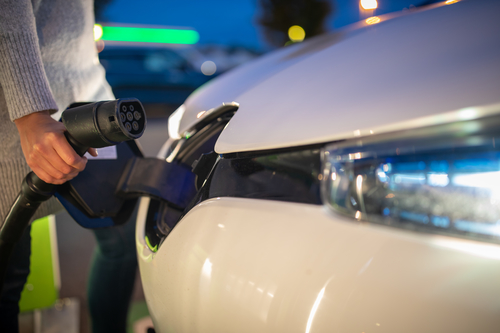
As another German manufacturer, Audi will be represented at Auto Shanghai with the Ai:me. The futuristic electric car is equipped with a lighting system that visually displays the vehicle’s behaviour to pedestrians and cyclists. Designed as a compact city car, Audi has so far indicated an electric motor output of 170 hp and a battery capacity of 65 kWh, with no details being given on the range. VW subsidiary Skoda presents the Vision iV study in Shanghai. The electric car is powered by two engines with a system output of 306 hp and has a range of 500 kilometres.
Renault is in Shanghai together with its joint venture Dongfeng Renault Automotive Company and shows the series version of last year’s K-ZE study. The fully electric compact SUV is Renault’s sixth electric model and part of the international strategic plan “Drive the Future”. Infiniti, the Japanese premium manufacturer, has travelled to Shanghai with an electric sports sedan contrarily to the previous mentioned brands. The Qs Inspiration Concept will serve as the basis for a new electric car platform. The Chinese start-up SF Motors presented its first electric model, the SUV SF5, under the Seres brand. It is a compact SUV with 693 hp and a range of 500 kilometers. Customers and companies in China appreciate the quality of foreign products in the automotive sector. We can advise you in the course of a CCC (China Compulsory Certification) necessary for the export and have this carried out for you.
For more information on how CCC certification may affect your company, or for more information about CCC certification in general, the process, and the associated costs, please visit our website and our News Section where you will find current updates twice a week.
Please do not hesitate to contact us for further details and consultation. You can contact us via e-mail, or call us (UK: +44 2071931135, Rest of Europe: +49 69 2713769150, US: +1 773 654-2673).
You can also check out our free CCC-Brochure, which can be downloaded right here as a PDF file or you consult our book (in English) “A Brief Guide to CCC: China Compulsory Certification”, which can be found directly here on Amazon.
Indian-manufactured Hyundai Venue ready for market launch
The compact SUV will be the first Hyundai vehicle to be produced entirely in India and will celebrate its market launch in May. The South Korean car manufacturer already has 2,000 pre-orders from dealers and online reservations 2 days after the official start of sales. The pricing of the Hyundai Venue will be announced on 21 May and competes with vehicles such as the Maruti Suzuki Vitara Brezza, Ford EcoSport, Tata Nexon and Mahindra XUV300. On the launch day, Mr Seon Seob Kim, Director and Chief Executive Officer of Hyundai Motor India Ltd, said the Venue would write a new chapter in Hyundai’s history in India. “With its distinctive look and connected technology, we want the Venue to appeal to a new generation of customers,” Kim said in a press release.
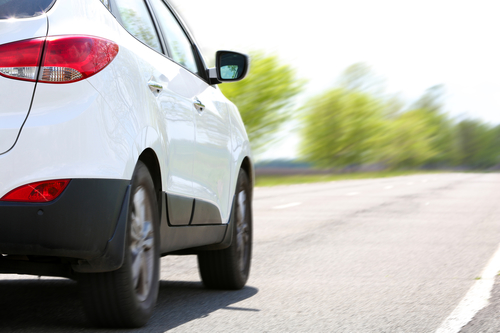 As the Venue is a large volume model for Hyundai, they will first produce a certain amount of stock before starting delivery. Due to the very high popularity of the Venue, long waiting times are predicted. The Hyundai Venue is the world’s first compact SUV of the brand under 4 metres in length and is available in 13 interior and feature variants and three engine versions, with two petrol engines and one diesel. In detail, these are a 1.2-litre four-cylinder engine with 82 hp / 114 Nm and a 1-litre three-cylinder engine with turbocharger, which produces 118 hp / 172 Nm and is thus the most powerful engine, the diesel is a 1.4-litre with 89 hp / 220 Nm. Available transmissions include manual transmissions with 5 or 6 gears and an automatic 7-speed dual-clutch transmission. As standard features, extras such as a sunroof or cruise control are intended to convince buyers. The Indian automotive market is growing. Take advantage of this and export your products to India. In many cases an obligatory India certification according to the Automotive Industry Standard (AIS) is required. We will be happy to advise you comprehensively on the AIS certification for India.
As the Venue is a large volume model for Hyundai, they will first produce a certain amount of stock before starting delivery. Due to the very high popularity of the Venue, long waiting times are predicted. The Hyundai Venue is the world’s first compact SUV of the brand under 4 metres in length and is available in 13 interior and feature variants and three engine versions, with two petrol engines and one diesel. In detail, these are a 1.2-litre four-cylinder engine with 82 hp / 114 Nm and a 1-litre three-cylinder engine with turbocharger, which produces 118 hp / 172 Nm and is thus the most powerful engine, the diesel is a 1.4-litre with 89 hp / 220 Nm. Available transmissions include manual transmissions with 5 or 6 gears and an automatic 7-speed dual-clutch transmission. As standard features, extras such as a sunroof or cruise control are intended to convince buyers. The Indian automotive market is growing. Take advantage of this and export your products to India. In many cases an obligatory India certification according to the Automotive Industry Standard (AIS) is required. We will be happy to advise you comprehensively on the AIS certification for India.



